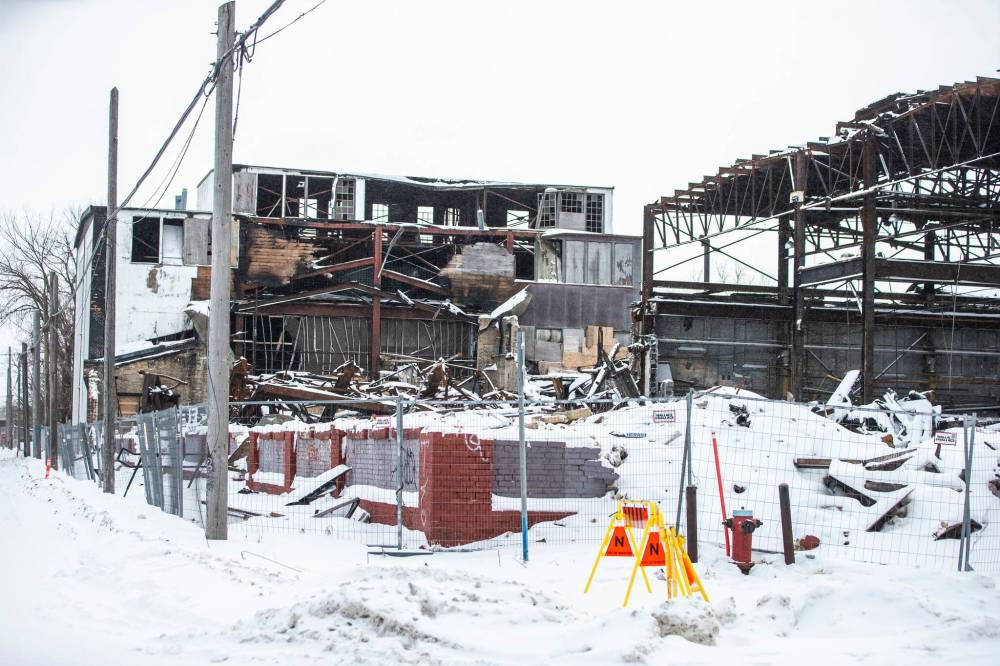Sometimes, as a species, we humans seem intent on fouling our own nest.
We’ve done so much to degrade the planet and each other — polluting waters and decimating forests; destroying habitat and driving animal species to extinction; creating food insecurity through overdevelopment and war; oppressing those we value less and exploiting the vulnerable; catapulting people into poverty through corruption and greed.
Cheery world, isn’t it?
John Locher / Associated Press Files
Attendees wear virtual-reality headsets to preview the Caliverse Hyper-Realistic Metaverse experience during the CES tech show in Las Vegas on Jan. 6. Sexual assaults have been reported in virtual spaces such as the Metaverse.
So I guess it should be no surprise the news cycle of 2024 started with reportage about how sexual abuse is infecting the metaverse, those burgeoning cyberworlds where people interact through avatars using virtual-reality (VR) headsets.
The Daily Mail in the U.K. broke the news in an exclusive story with an incredibly long headline: British police probe VIRTUAL rape in metaverse: Young girl’s digital persona ‘is sexually attacked by gang of adult men in immersive video game’ — sparking first investigation of its kind and questions about extent current laws apply in online world.
There’s a lot to digest here, but the gist of the article is that a British girl under 16 says she was playing a virtual-reality game when her online persona, or avatar, was raped by multiple avatars controlled by strangers playing the same game.
“Officers said she suffered the same psychological and emotional trauma as someone who has been raped in the real world, as the ‘VR’ experience is designed to be completely immersive,” the Daily Mail’s Rebecca Camber reported.
“It is thought to be the first time in the U.K. that a virtual sexual offence has been investigated by police.”
The good news is that British authorities are taking the child’s allegation seriously, despite critics who claim the police have enough “real-world” crime to keep them busy.
British Home Secretary James Cleverly said in an interview with the U.K. program Nick Ferrari at Breakfast, “I know it is easy to dismiss this as being not real, but the whole point of these virtual environments is they are incredibly immersive. And we’re talking about a child here, and a child has gone through sexual trauma. It will have had a very significant psychological effect and we should be very, very careful about being dismissive of this.”
The bad news is that this is not the first time sexual abuse has been reported by a metaverse gamer. News of online abuse has been trickling out for years, and we can expect to hear more as virtual-reality platforms gain in popularity.
MIT Technology Review published an article in December 2021, headlined The metaverse has a groping problem already: A woman was sexually harassed on Meta’s VR social media platform. She’s not the first — and won’t be the last.
In May 2022, the New York Post announced Disturbing reports of sexual assaults in the metaverse: ‘It’s a free show,’ which describes the account of a 21-year-old woman who says her avatar was raped while other characters watched.
These revelations are concerning on several fronts.
First, surely sexual activity without consent — sexual assault — should be taken as seriously online as it is off; there are human beings behind the avatars, after all. Yet clearly, real-world laws have not kept up with crimes in the metaverse. How many sexual predators are roaming gaming worlds scot-free?

MIKAELA MACKENZIE / WINNIPEG FREE PRESS
On Sunday, firefighters responded to another fire at the former Vulcan Iron Works foundry.
Second, where is the oversight by the corporations behind these virtual worlds? Meta, for example, says it has personal boundary settings as a default in its games, so avatars can maintain distance from each other. Clearly these settings can be breached or shut off. Where is corporate accountability when violence occurs within the worlds they have created?
Third, are sexual predators using virtual-reality games as a training ground for their abhorrent behaviour? Will their unfettered experiences in the metaverse embolden them to sexually abuse people in real life?
And fourth, since gamers can take photos and video of the action playing out on their screens, images from the virtual world could be widely disseminated, thus further victimizing those people whose avatars were sexually assaulted.
As MIT Technology Review’sTanya Basu reported in 2021, “If anything is clear, it’s this: There is no body that’s plainly responsible for the rights and safety of those who participate anywhere online, let alone in virtual worlds. Until something changes, the metaverse will remain a dangerous, problematic space.”
Lawmakers should not wait until the metaverse has its own #MeToo movement before taking action.
Virtual gaming was intended to be a fun experience, not a forum for Sexual Assault 2.0.
It’s a disturbing trend, and brings to mind a line from Irish-Canadian writer Emma Donoghue’s novel Learned by Heart: “Human beings have invented so many new sources of pain.”
Pam Frampton is a freelance writer and editor who lives in St. John’s. Email pamelajframpton@gmail.com X: pam_frampton
This news is republished from another source. You can check the original article here






